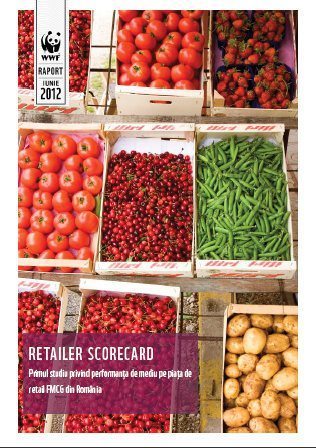The World Wildlife Fund is reaching into new corners of your life.
The more I learn about the World Wildlife Fund (WWF), the more perplexed I become.
In the beginning its role seemed clear. It was about protecting wildlife. You know, pandas and polar bears. Then it decided that its job was to save the entire planet from climate change. While wearing that hat sanctimonious WWF employees lectured the rest of us about our behaviours and our lifestyles.
But things didn’t stop there. Indeed, when one considers what the WWF is doing in Romania these days, it’s difficult to avoid concluding that these are authoritarian personalities intent on dictating the smallest details of our lives.
Hiding behind that cuddly corporate logo, it seems, are school marms who think it’s their business to boss everyone – and I mean everyone – around.
The Romanian arm of the WWF has just released a 38-page report. Is it concerned about a rare species of bird on the verge of extinction? Does it advocate the establishment of more nature preserves?
Nope. Instead, this is a scorecard that claims to assess the environmental performance of supermarket chains. The report itself is in Romanian, but Google Translate provides a usable approximation.
WWF Romania director Magor Csibi makes it clear, at the beginning of this report, that the fact that large supermarket chains are expanding the size of their market is a big concern. How is that any of the WWF’s business?
Moreover, he seems to think that the primary job of supermarkets is not to give consumers what they want at a competitive price but to worry about the political subtext of their inventory. In Csibi’s words:
Any product on the shelf set trends and change mentalities.
His statement talks about living “in harmony with nature” and insists that supermarket chains should be transparent. That’s a good one. Perhaps the WWF could set the example by telling us how much it pays its own Director General (see the bottom of this blog post) and who, precisely, belongs to its shadowy 1001 Club of major funders.
The report complains that supermarkets are selling only one brand of “certified green” milk, that not enough toilet paper is made from recycled material, that too few organic products are available, and that “only 3 of the 10 retailers” sell “MSC certified fish.”
And here we come to the crux of the matter. The WWF doesn’t appear to mention this fact in the report itself, but a few moments with Google reveals that MSC certification isn’t just any standard. In fact, it’s the WWF’s very own brand of certification. As a WWF website explains:
The MSC, a certification holding body, was founded in 1997 by Unilever and WWF to promote responsible fishing practices worldwide. [backup link]
Is this report an even-handed assessment of Romanian supermarket chains? Or is it an attempt to intimidate supermarkets – to compel them to stock WWF-approved products or risk negative publicity?
Is a report like this really about helping the environment – or is it about expanding the WWF’s influence?
After all, my freedom to buy a particular product will be meaningless if the WWF has already pressured retailers not to stock it.






